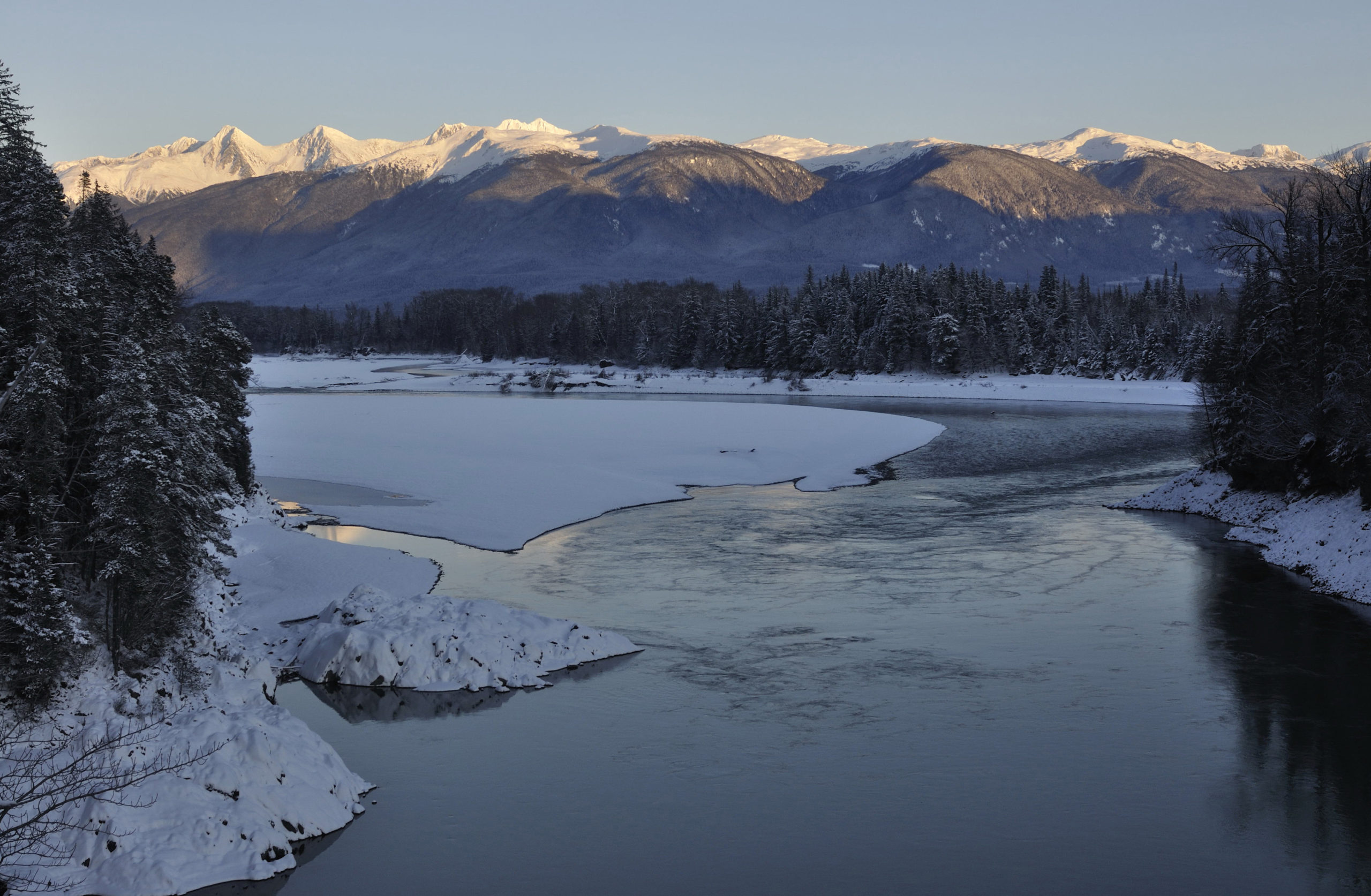This article is a summary of “A Guide to Aboriginal Harvesting Rights” (2017), written by Claire Truesdale and Karey Brooks. Link to full document is here: https://pubsdb.lss.bc.ca/pdfs/pubs/A-Guide-to-Aboriginal-Harvesting-Rights-eng.pdf
Introduction
Harvesting rights in Canada are based on traditional activities and can include a range of rights such as trapping, hunting, fishing, and gathering plants, fungi or timber. For First Nations, Inuit, and Métis peoples in what is now known as Canada, harvesting rights fall under both Aboriginal and Treaty Rights. The scope of these rights and whether and how they are recognized by the provincial and federal government varies widely. There can also be differences in when/where harvesting rights are subject to aspects of federal, provincial, or Indigenous laws, including rules and policies relating to resource conservation and safety. All of this means that understanding your harvesting rights can be a complicated task.
This summary is focused only on harvesting rights the provincial government currently recognizes in BC, and identifies some steps you may want to consider to help reduce the risk of being charged with offences under provincial legislation when harvesting under Aboriginal or Treaty Rights. You may hold constitutional rights to harvest that go beyond what is reflected in this summary, but that are not currently recognized by the Government of British Columbia (“BC”).
If you are Indigenous and are charged with an offence arising from harvesting activities, you should seek legal advice as you may harvesting rights that can be raised as a defense to those charges.
Hunting, Trapping and Freshwater Fishing in BC – Status Indians, Non-Status Indians, and Métis
If you are a status Indian and a resident in BC, you do not need a license or permit to hunt animals or migratory birds, trap, or freshwater fish under BC wildlife regulations. However, the harvesting must be for food, social, or ceremonial purposes, and within areas that your First Nation has traditionally used.
If you don’t have Indian status, BC doesn’t recognize your right to hunt, trap, or freshwater fish without a licence. Accordingly, one strategy non-status individuals may want to consider to avoid being charged is to purchase the licence or permit for the types of harvesting you with to do.
If you are Métis, your Aboriginal rights are also protected under section 35 of the Constitution Act, 1982 and they may include fishing, hunting, trapping, and gathering plants, fungi, or timber. However, BC doesn’t recognize a Métis right to hunt without a license under the Wildlife Act. You can apply for a harvester card with the Métis Nation of BC. The harvester card makes it easier for you to confirm that you have a connection to and support from the Métis community, which can be relevant to later asserting Metis harvesting rights if you are charged. It allows you to hunt migratory birds (replacing the Federal Migratory Bird Licence) but does not authorize hunting any other animals under current BC wildlife regulations.
It is also important to recognize that Indigenous Nations may have their own harvesting laws that should be understood and respected.
Other Types of Harvesting in BC
In BC, gathering plants (other than timber) and fungi on public land that isn’t a national or provincial park is generally allowed, unless the species is listed in the Species at Risk Act and you’re harvesting on federal land.
In some instances Aboriginal rights can include rights to harvest timber, but BC doesn’t recognize an Aboriginal right to harvest timber without a licence or permit under the Forestry Act and Forest and Range Practices Act. Even with an Aboriginal right, you may be charged if you exercise this right without a permit. One strategy you may want to consider to avoid being charged is to apply for a Free Use permit, which is issued by the Ministry of Forests, Lands, Natural Resource Operations and Rural Development for harvesting timber for traditional and cultural activities.
With regards to saltwater fishing, the federal department of Fisheries and Oceans Canada (DFO) issues a communal fishing licence to each First Nation, which lists the species of fish, where they can be harvested, and amounts your First Nation is entitled to harvest for food, social, and ceremonial purposes under that licence. You should speak to your Nation about what harvesting is permitted under this licence.
If you decide that you want to harvest in an area that is outside of your community’s traditional territory, it can be a good practice to contact the Nation on whose territory you wish to harvest, as they may give you special permission to hunt or fish in their territory. When you ask for permission, it may help to get a letter from the leadership (Chief and Council or other governing body) of the Nation that states their permission, or even a record on paper regarding who you may have spoken with in the Nation who gave you permission. If you are a status Indian, you don’t need a licence from BC to hunt on another Nation’s land, but if you’re a non-status Indian, it can be a good idea to get the required hunting and fishing licences as well as permission from the Nation.
BC does not currently recognize rights to harvest for sale, trade or barter purposes, except in the case of some modern treaties. If your Nation has a modern treaty, talk to your Nation about what rights are in the modern treaty relating to harvest for sale, trade or barter. If your Nation does not have a modern treaty, one strategy to reduce the risk of being charged for harvesting contrary to regulations is to obtain any necessary permits or licences from the province to harvest resources for sale purposes .
Harvesting Rights and Treaty in BC
Treaty rights, as protected under section 35 of the Constitution Act, 1982, include rights agreed to in historic, numbered and modern land claim settlements (modern treaties). Modern treaties outline where, what, and how you may harvest, what you can do with your harvest, and what laws may apply.
Currently, provincial and federal fish and wildlife regulations in BC don’t officially recognize harvesting rights for First Nations with historic treaties. One strategy to avoid being charged is to follow any licencing requirements that correspond with the type of harvesting you wish to do as outlined in the above sections.
The effect of Conservation actions and needs
Canadian courts have found that governments may restrict harvesting rights for conservation and public safety, and public health purposes.
Recap: Strategies that may reduce your risk of being charged or convicted of harvesting offences
If you choose to harvest without a provincial or federal licence or permit, you may be at greater risk of being charged and prosecuted with an offence, but there are some general ways to reduce the risk of being charged and convicted. It is always a good idea to carry your Indian status card (if you have one), Nation membership or harvesting card (if you have one) and/or a letter from the leadership (Chief and Council or other governing body) of your community stating that you are a member or descendent of the community. You should also confirm with your community that you are harvesting in a way consistent with your community’s traditional practices (although you can use modern methods such as using a gun to hunt). You should understand what areas or species may be under conservation actions. Finally, you should be aware that governments are likely to give close scrutiny to activities associated with harvesting for sale, trade or barter purposes and this can be an area of increase conflict with governments.
Pre-Harvest Checklists
This guide (https://pubsdb.lss.bc.ca/pdfs/pubs/A-Guide-to-Aboriginal-Harvesting-Rights-eng.pdf) has a series of pre-harvesting checklists that may be helpful for identifying practices that may assist with minimizing the risk of being charged while harvesting.
Resources Given
- More information about hunting and freshwater fishing licences
- Fish and Wildlife Branch – 1-877-855-3222
- gov.bc.ca – Click Info about Natural Resource Applications – Click Fish and Wildlife. This will take you to a list where you can choose information about hunting, fishing, and trapping licences
- Marine fishing – region DFO offices – dfo-mpo.gc.ca/contact/regions/index-eng.html
- To hunt migratory birds, you need to buy a permit at permit-permits.ec.gc.ca or call the Canadian Wildlife Service at 1-800-668-6767.
- To read the list of species at risk, go to Canada.ca. In the search bar at the top right, put in “Species at Risk Public Registry”
- Free Use permit application (for harvesting timber for traditional/cultural activities) – available at www2.gov.bc.ca – In the search bar at the top right, type “Free Use Permit Forest Tenures.” – You can return it to FrontCounter BC at one of their locations, which are listed at frontcounterbc.gov.bc.ca — click Where — FrontCounter BC locations.
- Information about harvester cards – Métis Nation BC at 1-800-940-1150 – Or see Métis Nation BC’s website: Go to mnbc.ca. and under Directory at the top, choose Harvesting.
- BCMANR application to get a harvester card as a Métis Nation BC citizen – call phone number above or apply online using Harvesting page above
- Information about the current modern treaties – bctreaty.ca. (Under Negotiations, choose Treaties and Agreements in Principle)
- Information about conservation concerns/restrictions
- BC Fish and Wildlife Branch – 1-877-855-3222
- Conservation Officer Service – 1-877-952-7277
- Conservation concerns for marine fishing – list of DFO offices: dfo-mpo.gc.ca/contact/regions/index-eng.html
- Limited Entry Hunting (LEH) permit
- Whether it is required for a certain species – BC Fish and Wildlife Branch at 1-877-855-3222
- How LEH works – www2.gov.bc.ca – In the search bar at the top right, type in “LEH”
- Apply for an LEH permit online – www2.gov.bc.ca – In the search bar at the top right, type in “LEH Application”
- Apply for an LEH permit by phone or email – 250-356-5142 or Hunting@gov.bc.ca
- Information on hunting in provincial parks – env.gov.bc.ca – In the search bar at the top right, type “hunting in BC parks”
- Information on firearms licence process – rcmp-grc.gc.ca – Type in “Firearms Licence” in the search bar at the top right
- Hunting and Trapping Regulations Synopsis – www2.gov.bc.ca – In the search bar at the top right, type “Hunting and Trapping Regulations”
- Freshwater Fishing Regulations Synopsis – www2.gov.bc.ca – In the search bar at the top right, type “Freshwater Fishing Regulations”
*More information is available in original document linked at the top of this summary about harvesting rights and the process if you have been charged with a harvesting offence – getting legal help, what to expect from a lawyer, what your lawyer needs to know, Gladue rights, and court processes.

By: Shayla Praud, Student

